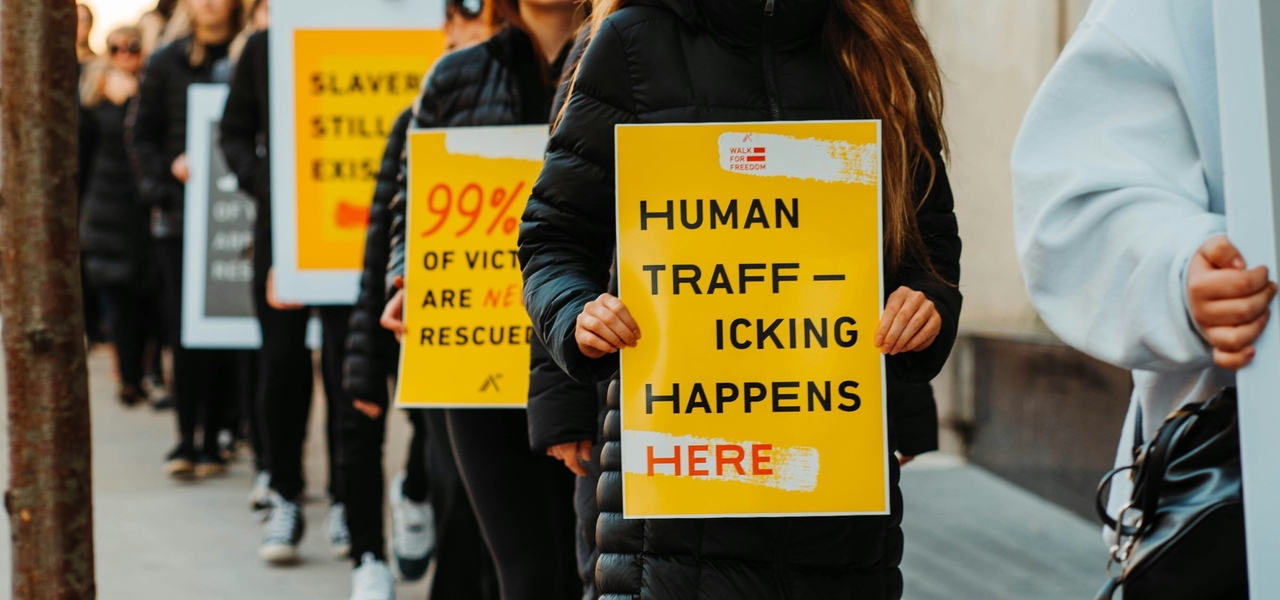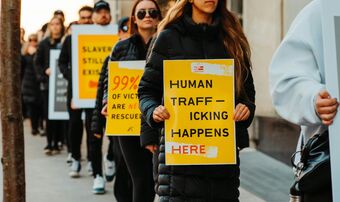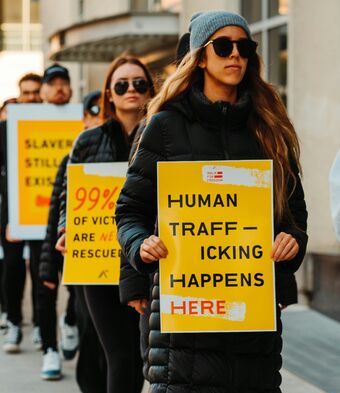The Nationality and Borders Bill is a UK Government Bill introduced on 6 July 2021 in the House of Commons by the Home Secretary, Priti Patel. The Bill will implement many of the measures included in the Government’s New Plan for Immigration Policy Statement (published March 2021).
According to a Briefing Paper from the House of Commons, the Bill has three main objectives:
- To increase the fairness of the immigration system to better protect and support those in need of asylum.
- To deter illegal entry into the UK.
- To remove those with no right to be in the UK more easily.
The Bill had its Second Reading in the Commons on 19-20 July and then moved to Committee Stage. At the time of writing, the Bill is still receiving scrutiny from the Public Bill Committee and will soon move to Report Stage, which is where all MPs have a chance to debate amendments to the Bill. CARE is supportive of a key amendment to the Bill as it stands which will improve the support given to victims, and we’ll say more about that at the end of this briefing.
Modern Slavery in the UK
Before outlining the six specific concerns we have with the Bill, it’s important to remember that modern slavery is happening in communities across the country. There’s estimated to be 100,000 people in some form of modern slavery here in the UK, with a global figure of 40.3 million.
These figures of victims referred to the National Referral Mechanism (the Government's scheme for identifying victims) do not tell the whole story. But they do highlight how numbers have increased when compared with even three years ago.
Prevalence of modern slavery in the UK: victims referred to the National Referral Mechanism.
2018 | 2019 | 2020 | |
Adults | 3,856 | 5,852 | 5,087 |
Children | 3,137 | 4,547 | 4,946 |
Total | 6,993 | 10,616 | 10,613 |
Behind each number is a person, made in God’s image who needs long-term support.
So, why are we concerned?
- Concern number 1: Using an Immigration Bill to make changes to the law on modern slavery
The first thing to say is that CARE believes as a point of principle that a person’s immigration status should be considered separately from the initial decision as to whether they are a victim of modern slavery. To conflate the two, as this Bill does, could see genuine victims unable to access the help they need.
- Concern number 2: potential impact of asylum changes for victims of modern slavery
Suggestions in the Bill that a person must have arrived legally to claim asylum could have an impact on victims of modern slavery who’ve been brought to the UK either without their consent or full understanding.
CARE believes that victims who may be potential victims of trafficking should be assessed through the Government’s scheme for identifying victims, known as the National Referral Mechanism (NRM), regardless of how they arrived in the UK.
- Concern Number 3: changes to determining who is a victim of modern slavery
The Bill brings in UK-wide changes that would allow the Home Secretary to define who is a victim of modern slavery. Specific information will be required within a given timeframe to make this determination. But there is nothing in the Bill to explain what that information should be.
This raises the alarming prospect that some genuine modern slavery victims in this country will not, under the terms of this Bill, be able to provide the ‘right evidence’ in a timely enough manner to ensure they are not rejected as a victim of modern slavery. Victims of modern slavery often experience extreme trauma at the hands of their abusers – a trauma which is difficult to articulate in the immediate aftermath of their exploitation. It would be unfair and unrealistic to expect individuals to disclose details of their abuse from the outset if they have been trafficked into the UK.
We already have a real challenge with some victims refusing to even enter the National Referral Mechanism (NRM). If entering it is going to be more closely connected to immigration status, because of the very nature of human trafficking (which is a cross-border crime), we suspect that number will increase.
- Concern Number 4: changes to the recovery period for victims across the UK
Central to a victim’s recovery is support. That’s why CARE is supporting Lord McColl’s Modern Slavery (Victim Support) Bill, which is awaiting debate in the House of Lords. The recovery period is when a potential victim is being assessed to determine if they are a victim of modern slavery, during which time they can receive support and assistance. During the recovery period, a victim cannot be deported if they are not a UK citizen.
Current guidance sets the recovery period in England and Wales at a minimum of 45 days. In Northern Ireland, victims can receive support for up to 45 days even if a decision is made before then. Scotland offers up to 90 days support, or until a decision is made. The Bill defines the Recovery period for all victims as 30 days which is shorter than currently available. For victims who are experiencing support post-30 days but before the current 45-day offer is up, this change will create huge uncertainty.
- Concern 5: changes to statutory support for victims in England and Wales
Clause 52 will put support for victims in England and Wales on a statutory basis during the 30-day recovery period. While it’s great that the support is being guaranteed in law, it still falls substantially short of what’s needed. More statutory support is on offer in Scotland and Northern Ireland and what’s being proposed is also less than the McColl Bill, which would guarantee confirmed victims at least 12 months support.
- Concern 6: changes on leave to remain for victims across the UK
Under current discretionary leave to remain (DLR) policy, DLR is only granted where victims are not eligible for any other form of leave and they meet certain criteria. While the Bill puts current discretionary leave specifically for modern slavery victims on a statutory basis for the first time, the proposals are more restrictive than the criteria currently set out in guidance. Discretionary leave to remain will now be restricted to what is considered necessary to assist in recovery of harm directly caused by trafficking, rather than what is considered necessary for a victim’s personal circumstances. This is significantly stricter than current policy.
We know that trafficking victims’ needs are complex: it will be extremely difficult to determine what is an existing need that led to the person being trafficked in the first place, and what is a need caused by their trafficking situation. Furthermore, leave will not be granted if the victim can receive support in their own or a third country. This could be disastrously traumatic for some genuine victims.
Why does this matter?
For some time, CARE has been campaigning for better support for victims of modern slavery. We should always remember that behind each story about human trafficking and modern slavery you might read, are real human beings. Vulnerable women, children, and men, deceived by criminals, are finding themselves trapped in situations of exploitation, forced to work long hours with little to no pay, or even sexually exploited; their fundamental dignity and freedom violated.
Long-term, holistic support gives victims a much better hope of rebuilding their lives and prevents re-trafficking. It also increases the likelihood that they will be willing to testify in court against their traffickers. In turn, this makes convictions more likely, which will then send a strong message that the UK is a hostile place for human traffickers.
While this Bill does propose changes to support for confirmed victims, it falls far short of what is needed. Lord McColl’s Modern Slavery (Victim Support) Bill would give confirmed victims leave to remain and long-term support for at least 12 months.
That gives people who’ve been rescued the security of knowing they will not be deported to another country, nor will they be abandoned but instead, they’ll be helped for at least a year. The evidence tells us when victims know they’ll receive support, they are more likely to be willing to testify in a court of law which in turn, increases the chances their traffickers will be brought to justice.
What can you do?
We’re preparing to launch a new email writing campaign to MPs to improve support of a key amendment for victims through this Bill. Keep an eye on CARE’s website and social media where we’ll provide updates. You can also sign-up for our weekly email news as well.



